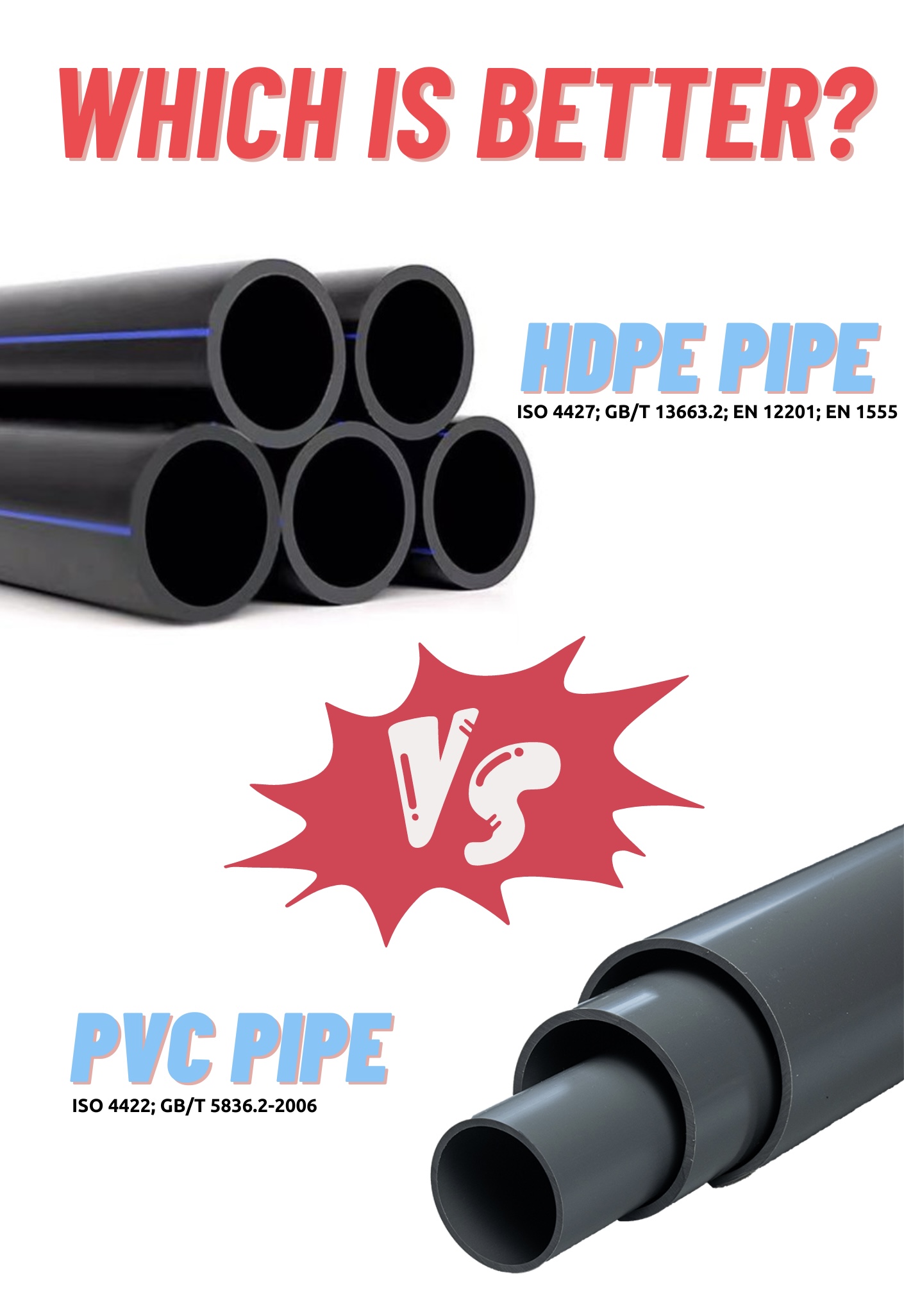In the fields of construction, engineering, and water resources, selecting suitable pipeline materials is crucial. Among numerous pipeline materials, HDPE (High Density Polyethylene) pipes and PVC (Polyvinyl Chloride) pipes have been a subject of controversy, with which one is superior being a focal point of industry discussions. Although they share some similar characteristics and applications, there are still some key differences in material performance, installation, cost control, and environmental sustainability.
Material Performance:
HDPE pipes, made of high-density polyethylene, have excellent pressure resistance, impact resistance, and corrosion resistance. They can stably operate long-term in various environments, especially suitable for hydraulic systems and sewage treatment. PVC pipes, primarily composed of polyvinyl chloride, possess outstanding chemical corrosion resistance but slightly inferior pressure resistance compared to HDPE pipes.
Installation:
HDPE pipes are connected by heat fusion welding to ensure the firmness and sealing of the overall pipeline connections. PVC pipes are generally connected through solvent cements. Depending on different connecting methods, the overall installation and maintenance costs may vary between two different pipes.
Cost Control:
Compared with HDPE, PVC resin is cheaper and can be manufactured using less complex processes. Therefore, PVC pipes typically have lower costs, suitable for projects that are budget-limited, temporarily needed, or economically required. However, in the long term, the resistance to environmental stress cracking in complex underground scenarios gives the HDPE pipe a longer service life than the PVC pipe. Over time, maintenance costs may alter the overall cost situation.
Environmental Sustainability:
Due to the use of environmentally friendly high-density polyethylene material, HDPE pipes have a significant advantage in terms of sustainability and can be 100% recyclable. But PVC pipe recycling poses challenges economically and logistically, leading to the limitation in recycling.
Overall, HDPE pipes may be more suitable in the occasions where higher corrosion resistance, impact resistance, and longer service life are required. PVC pipes may be more economically practical if the project budget is limited and simpler installation is needed. The choice of pipe material depends on the comprehensive consideration of specific project requirements and environmental conditions.
Post time: Mar-08-2024





